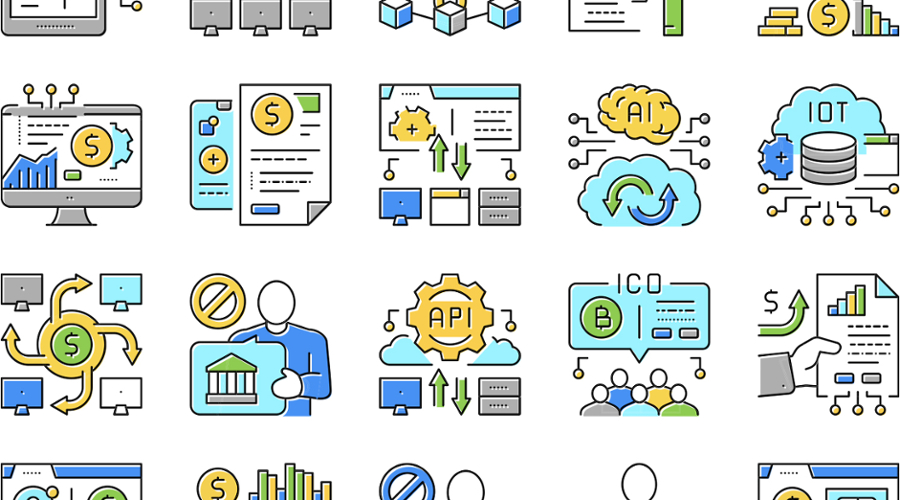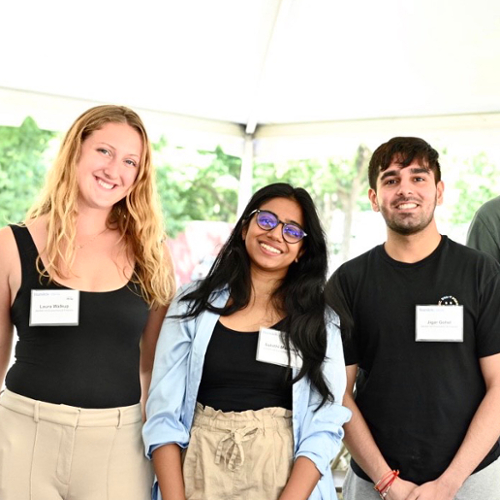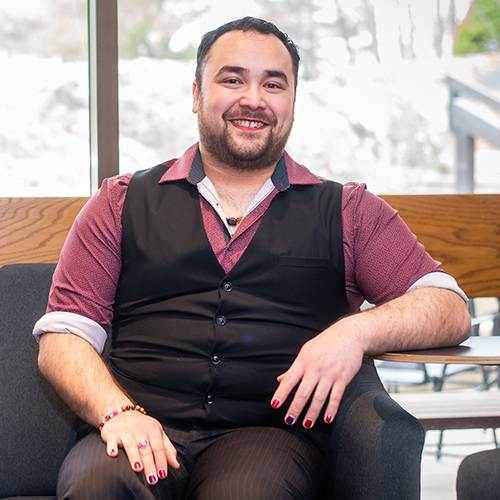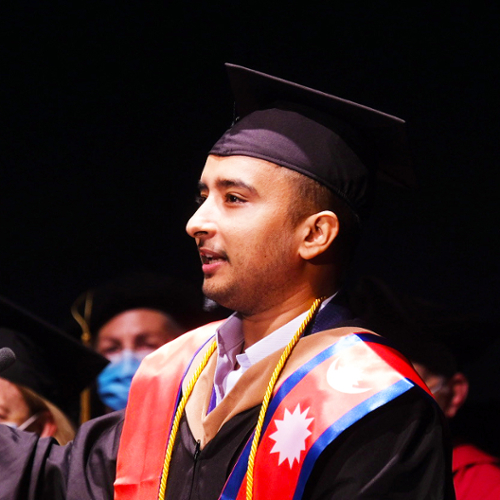More than 7 million U.S. households are “unbanked,” or without access to a checking or savings account, according to a recent
FDIC survey.
This lack of access to the banking system impacts Black (13.8 percent) and Hispanic (12.2 percent) households at a significantly higher rate than white households (2.5 percent), furthering the racial and ethnic wealth gap in the United States.
Among the reasons survey respondents gave for not having a bank account, a lack of trust of banks and a desire for more privacy were high on the list.
“There is a low level of trust in general,” said Jonathan Skidmore, MBA’22. “Especially when it comes to data protection.”
Count Skidmore and Prof. Erich Schumann among those who believe blockchain technology can help bridge that trust gap with unbanked Americans — and increase their ability to build savings, access credit and generate wealth in the process.
Before he graduated from the
Master of Business Administration (MBA) program, Skidmore and a team of Brandeis International Business School students helped Schumann build a blockchain-based banking app during a
field projects course.
“The students contributed critical research and data analysis that helped focus the scope of the app,” said Schumann, whose financial consulting firm Global Atlantic Partners has worked with the business school on two field projects. “Their research is also helping us anticipate future regulations in the digital banking space.”
A blockchain is a decentralized digital database where users can securely record transactions on a peer-to-peer basis. Although synonymous with cryptocurrencies like Bitcoin, the technology also has the potential to
disrupt traditional banking.
Users of Schumann’s Fincludio app — the name is a portmanteau of “finance” and “include” — choose which services they’re interested in and which banks they want to do business with. Their personal information, meanwhile, is stored securely in a digital wallet on their smartphone. After a user selects a bank, the bank will only receive viewing access to the personal information it is required by law to collect and verify.
“You have your information,” said Schumann. “We put that in a wallet and it is secured by blockchain technology. And you decide to whom you want to give access to your wallet.”
Schumann said the app will also benefit smaller community and regional banks. It’s currently expensive to verify customer identities using traditional technology in accordance with state and federal laws, which lends an advantage to larger banks with better systems and more resources. Fincludio could help even the playing field, he said.
“I recently did a six-week training course with representatives from 30 community banks, and only two understood blockchain,” said Schumann. “I was surprised by this. But what will happen if they don't adjust? They’ll lose market share.”
In addition to learning more about an emerging technology like blockchain, Skidmore was eager to hone his consulting skills on the field project. His work focused on researching banking regulations in both the United States and European Union
“It was an opportunity to earn real-world experience that I added to my portfolio,” said Skidmore. “I got an inside look at the day-to-day tasks of a consultant — building presentations, communicating between your team and client and refining your work.”



